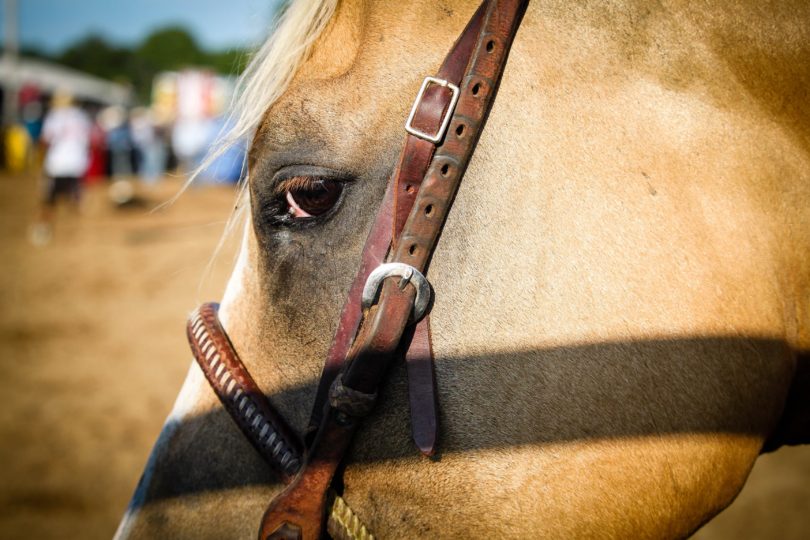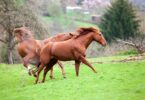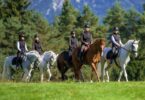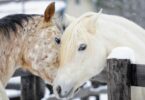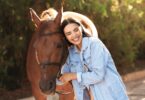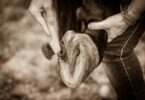First, a true story…
Last week, I was watching one of our younger riders get ready to start a lesson with her pony. She has swagger beyond her years and loves to share her thoughts with those who ride with her.
On this particular day, there was a new girl there, who was about to take her first lesson.
“Just don’t let Twister know you’re scared,” said the more experienced girl, undoubtedly repeating something she’d been told many times.
Her new friend covered her face with her hands, wailing, “He can see that?”
Spoiler: No, Twister could not see that his little rider was scared. But, he did look a little curious about all the noise!
Just like good old Twister, The Wonder Pony, horses notice your behavior vs. reading your mind.
What do horses think about nervous people?
Let’s take a little trip through time and examine a herd of wild horses. They’re big and strong, but they aren’t the top of the food chain.
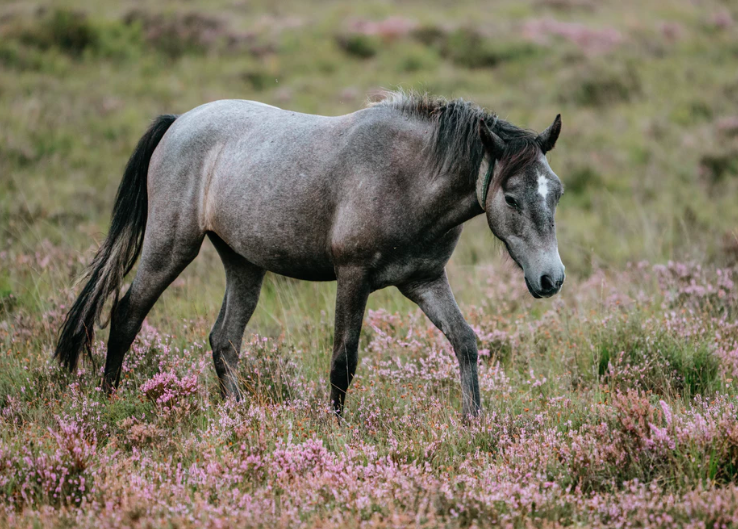
Wild horses have to stay on high alert.
That’s because horses aren’t predators. They don’t need to “hunt” in order to eat — they just move to the next clump of grass.
But, at any given time, other animals may be hunting them.
As any animal would that needs to stay on the lookout for a wolf or cougar, horses learned to be very aware of their surroundings.
If you watch domesticated horses around the barn, you’ll see that if one horse becomes interested in or worried about something in the distance, other horses will quickly follow their lead and look in the same direction.
They want to make sure no threats are in their vicinity, and they notice anything that’s out of the ordinary — just in case.
When a person is acting differently than what horses are used to (e.g. loud voices, moving really stiffly, or hesitant to approach), those behaviors gets their attention. They’re curious and want to confirm whether what they’re seeing is a threat–or not.
See tangible ways to boost your confidence with our list of 32 things you can do today to calm your riding nerves forever.
Will horses use your fear against you?
This is important (and why we love them so): Horses don’t want to take advantage of your nervousness.
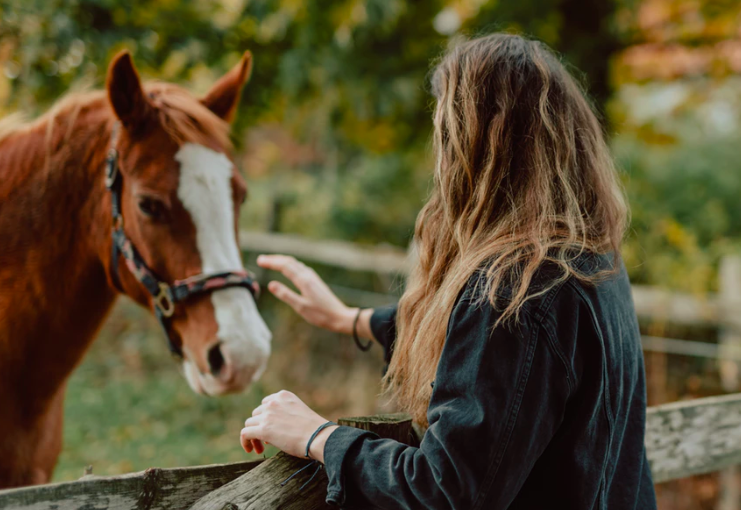
Horses aren’t looking for your weaknesses.
They’re NOT a cougar, after all! They aren’t going to prey on your fears, run you down, try to bite you, or pursue you around the arena if you’ve got a case of nerves. That’s simply not their thing.
Horses would much rather keep everything relaxed.
A perfect day for a horse? Chilled out, no drama. A little exercise, a lot of grazing, and certainly no chasing humans around.
That said, a pushy horse may test your boundaries if you’re unwilling to draw a line in the sand about his behavior. For example, he might tug on the lead line while you’re bringing him to the barn.
If you don’t correct him because you’re nervous, he might decide that patch of yummy, green grass next to the door is a lot more interesting than going to tack up for your lesson.
Don’t let your nerves develop bad habits in your horse!
Butterflies in your stomach? Learn how to get your mojo back when you’re scared to ride your horse.
Keep calm and carry on
If part of your nervousness stems from a fear that a horse will somehow sense your feelings and try to hurt you, it’s unfounded.
Will they pick up on the fact that you’re not 100% confident? Probably. Do they care? Only if they think that the reason you’re nervous is that there’s a sabertooth tiger hiding in the barn. (There’s probably not.)
Stick with the routine, remember to always follow safety procedures that your horse is used to, and you’ll be just fine!
P.S. Enjoy this article? Trot on over to:
- 32 Things you can do today to calm your riding nerves forever
- Can horses sense fear and anxiety?
- Scared to ride your horse? Get your mojo back
- How can I calm my nerves before horse riding?
- What are some ways to gain confidence riding horses
- Animal Whisperer: “Do Horses Have Emotions and Feelings?”

